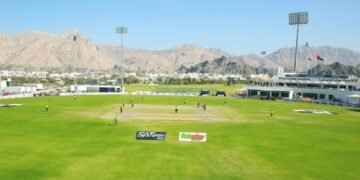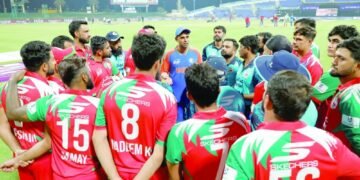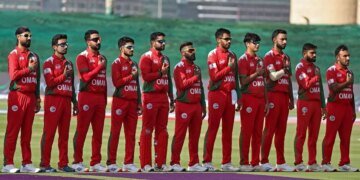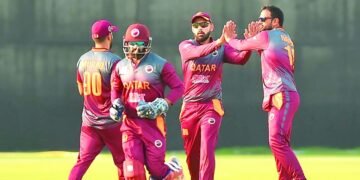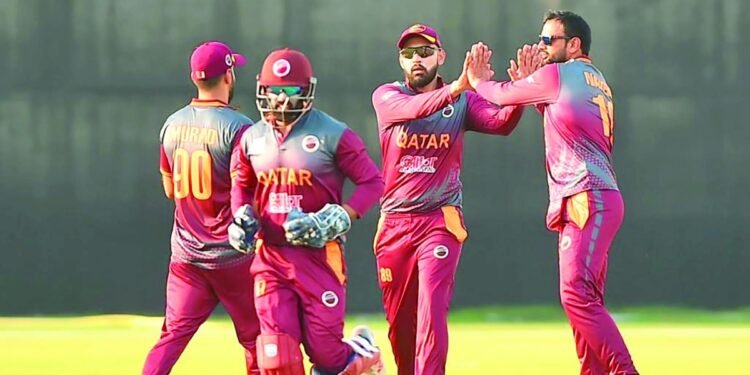How Qatar Is Supporting Cricket and Sports Culture in the Region
Can a country better known for motorsports and football become a hub for cricket in the Middle East? Qatar, once distant from traditional cricket strongholds like England and Australia, has made tremendous strides over the past decade. With growing infrastructure, expansive grassroots programs, and an emphasis on fan-focused digital engagement, the Gulf nation is rewriting the script of sports development—placing cricket firmly in its expanding portfolio.
Instead of merely encouraging neighbors to host sporting events, Qatar envisions a future with a self-sustaining cricket ecosystem. These efforts align with the broader national aim of merging sports, entertainment, and economic growth, establishing the Gulf country as a magnet for sports tourism.
From the fringes of the sporting map, Qatar has quickly emerged as a committed and strategic player.
Qatar’s Strategy for Sports Development
Historically, Qatar’s engagement with organised sports was minimal. The nation’s limited population size, traditional cultural focus, and economic activities like pearl diving offered little room for professional competition. However, a paradigm shift arrived following significant expatriate inflows and modernization of the local economy.
Within a decade, Qatar has played host to major global events—the most iconic being the 2022 FIFA World Cup, alongside others like the IAAF World Athletics Championships and the Gulf T20 Championship. These events have allowed Qatar to showcase its capacity for high-caliber sports hosting, sparking upgrades in stadiums, athletic training centers, and logistical amenities.
Through meticulous planning and intentional policy, Qatar now boasts a strategy built on international standards, community engagement, and cultural as well as economic diversification. The objective? Not a transient moment in the spotlight—but a sustainable, long-term sporting legacy.
Cricket’s Growing Footprint in the Middle East
Among Qatar’s many sporting ambitions, cricket stands out as a revelation. Once a fringe activity, the sport has become central to the local athletic identity. The transformation began in the 1970s with the arrival of labour migrants from South Asia, bringing with them not just food and traditions, but also a deep passion for cricket.
The centrepiece of Qatar’s cricketing ambitions is the West End Park International Cricket Stadium in Doha, which seats 13,000 spectators and debuted in 2013. It has welcomed landmark events such as the first-ever triangular women’s ODI and T20 tournament, the Eid T20 Challenge, and fixtures part of the prestigious ICC Cricket World Cup Super League. Strategically positioned between Asia, Africa, and the rest of the Middle East, Qatar offers an ideal venue for international broadcasting and world-class tournaments.
On the domestic front, the Qatar Cricket Association (QCA) orchestrates a vibrant grassroots structure encompassing men’s, women’s, and youth teams. With multiple competitive tiers, players are offered a clear trajectory toward elite play, nurturing talent from the ground up.
The Modern Entertainment Ecosystem
Qatar’s investments aren’t limited to fields and stadiums. The country has committed to creating a full-fledged entertainment ecosystem, blending physical infrastructure with an equally robust digital framework. Through high-speed internet, strategic partnerships, and support for tech startups, Qatar is emerging as a formidable force in new-age entertainment.
One shining example is the rise of esports, energised by the efforts of the Qatar Esports Federation and facilities like Virtuocity Qatar. Prominent players such as AaMeghessib have gained recognition globally, while collaborations like the one between Invest Qatar and Tencent’s Level Infinite aim to further integrate global gaming expertise into the Qatar National Vision 2030.
While casino gambling remains banned domestically, digital audiences frequently explore offshore platforms regulated by respected bodies such as the Malta Gaming Authority and UK Gambling Commission. Platforms recommended on sites like QatarCasino.com cater to the growing demand responsibly.
With the convergence of sports, gaming, and interactive content, Qatar’s audience—especially its mobile-first youth—is engaging with entertainment in dynamic and unprecedented ways.
Fan Culture and the Digital Cricket Experience in Qatar
Modern cricket in Qatar isn’t confined to the stadium. The game thrives around the clock in the digital realm, where fans follow matches online, share memes, watch highlights, and participate in fantasy leagues. Absent a centuries-old tradition, Qatar is spearheading a new era of cricket engagement, fueled by a young, tech-savvy generation.
Fantasy leagues, in particular, offer an exciting alternative in a region where sports betting faces legal restrictions. These platforms let fans manage their own teams, predict outcomes, and demonstrate deep sport IQ—all while building a sense of camaraderie online.
Access to regional cricket streams, whether from Dubai, Oman, or further afield, ensures widespread exposure and maintains enthusiasm throughout the season. It’s a digitally native culture, built on participation, personalization, and community-driven interaction.
Future Innings of Qatar’s Sporting Journey
Though relatively new to global sporting prominence, Qatar is already punching above its weight—and cricket is at the heart of that story. Blending grassroots energy, state-of-the-art infrastructure, and global collaborations, the country is actively shaping what modern sports culture looks like for the Gulf and beyond.
Thanks to its expatriate communities, cricket has transformed from a casual pastime to a national project. With fans tuning in for major tournaments, engaging with their favorite players on digital media, and organizing local amateur events, Qatar’s cricket journey is becoming a shining example for other nations looking to develop non-traditional sports ecosystems.
Cricket in Qatar no longer seems implausible—it’s already happening.
Team V.DIR-EM-UAE



